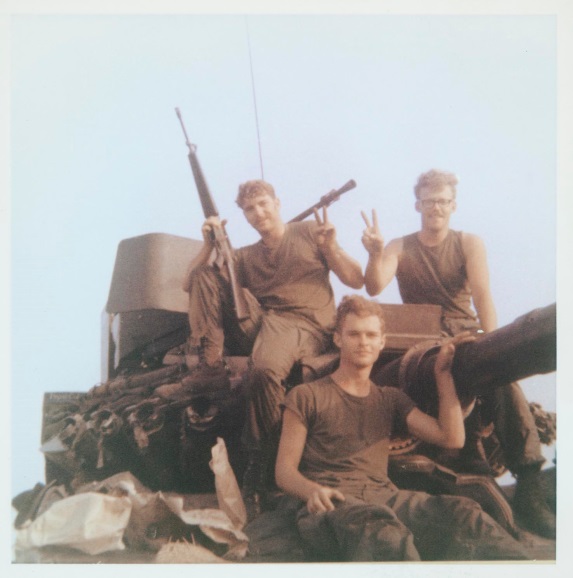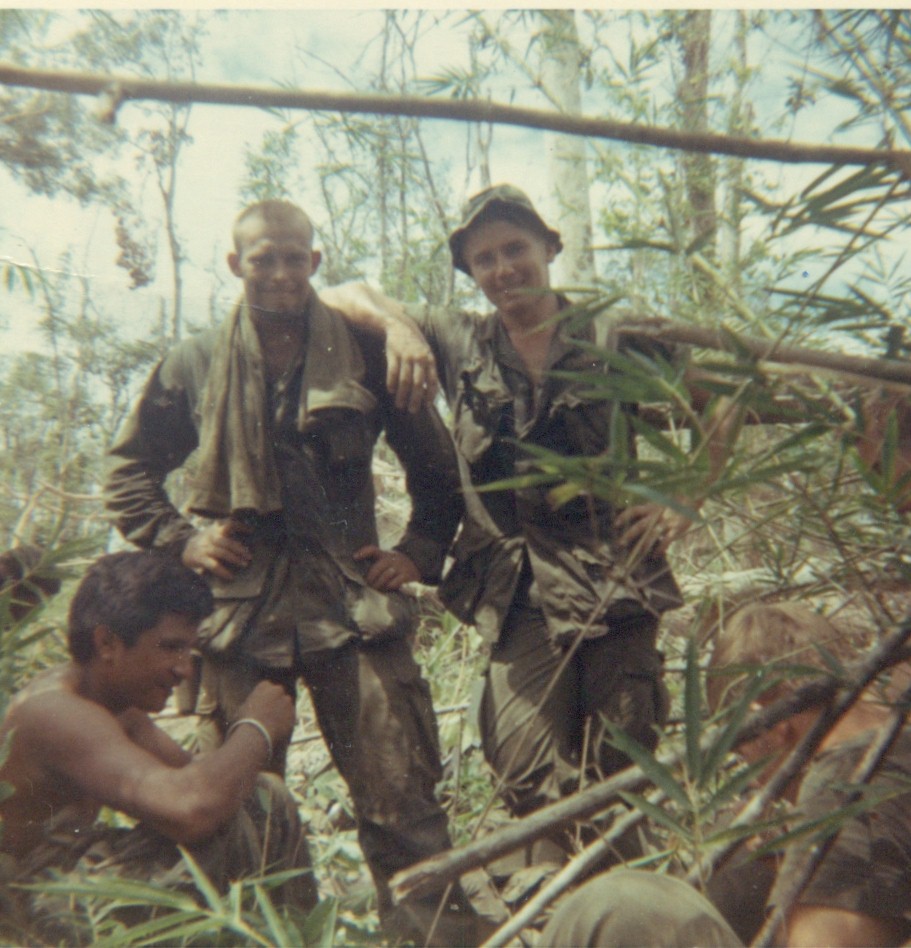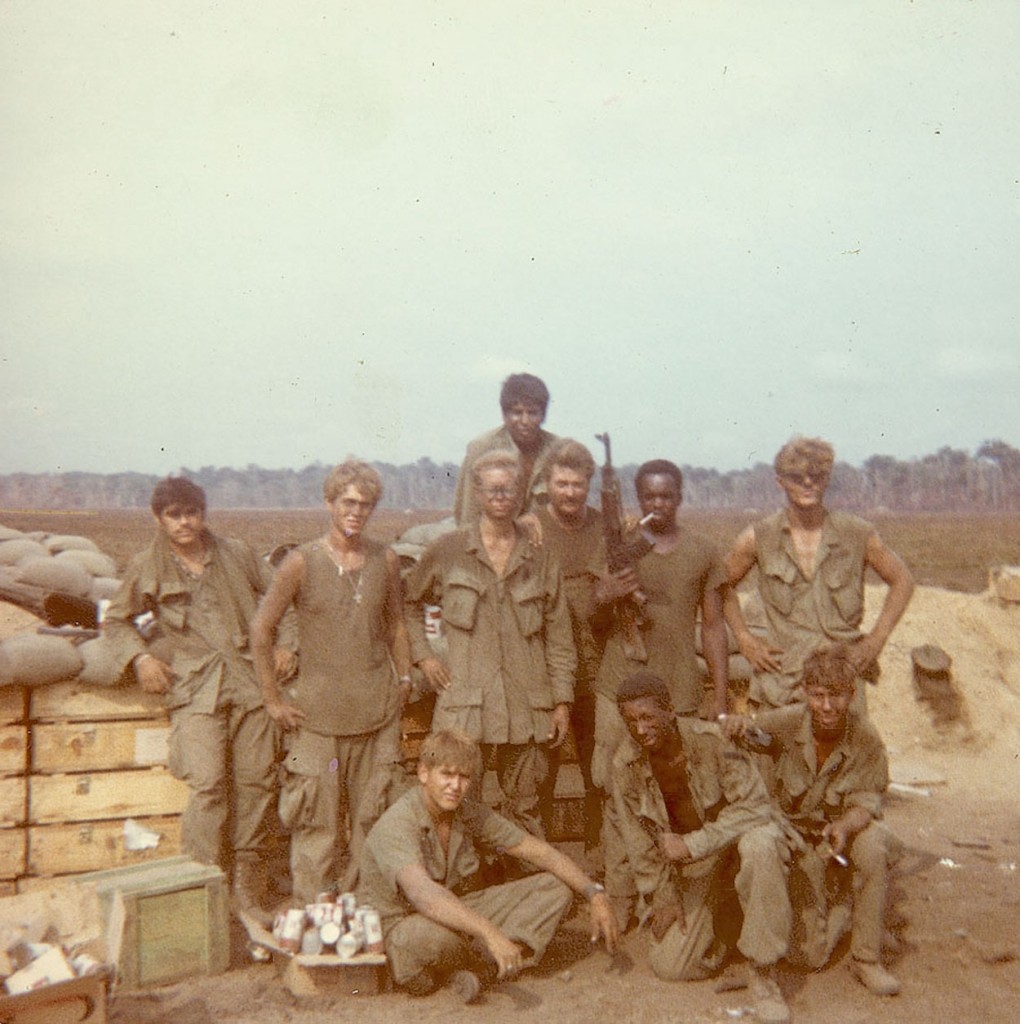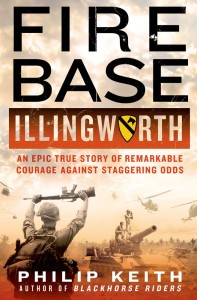By Phil Keith
In February of 2012 I wrote a piece for History Reader entitled “Why We Served”. It appeared just prior to the publication of my book Blackhorse Riders: A Desperate Last Stand, an Extraordinary Rescue Mission, and the Vietnam Battle America Forgot, from St. Martin’s Press. My next book, Fire Base Illingworth, an Epic True Story of Remarkable Courage Against Staggering Odds, also by St. Martin’s, is about to debut; so, I thought it would be appropriate to update my original essay on service in Vietnam. I am also motivated to write an addendum for two additional reasons: we’re in the midst of a number of activities commemorating the passage of 50 years (and more) since the full commitment of troops to the Vietnam War; and, I just visited, for the first time, the new Martin Luther King Memorial in Washington, DC. I’ll explain how these two vastly different occurrences intersect shortly.
In my first essay on “Why We Served,” I highlighted the experiences and motivations of a number of individuals who populated the events described in Blackhorse Riders. For the most part they were “average Joes,” young men who, for whatever reason, answered their country’s call and found themselves in the middle of the jungle fighting a war few of them understood and even fewer loved. Some-about half-had volunteered, either out of a sense of patriotic duty or to avoid the reason that the other half were there: the draft. No matter how they arrived at this crisis point in their lives, they seemed very clear about their motivations, which were: to do the right thing and “help a buddy.” In my personal observations of that war, as a participant in the air and on the ground, those goals were universal. We could gripe about the war, bitch about those appointed above us, grumble about the duty, decry the lousy food and worry about making it out alive, but hardly anyone ever shirked a duty to a comrade or failed to rise to the occasion when combat demanded it.
Although the Vietnam War was, in almost all respects, unlike any war American has fought before or since, it was like all of our wars when it came to the superlative performance of the American soldier. It also upheld the long-standing tradition of every serviceman and servicewoman’s sense of camaraderie and devotion to those who fought alongside them

There is, sadly, one aspect of the Vietnam War that is decidedly unlike what the Greatest Generation, our Korean Conflict veterans, the men and women who have served so valiantly in Iraq and Afghanistan have experienced: by-and-large, non non-Vietnam veterans have retained the respect of their fellow Americans for their sacrifices. The same cannot be said for those who served in Southeast Asia. After 50 years, don’t you think it’s time that dynamic finally changed?
Those of us who served in Vietnam did so for all the same reasons that the men and women of WW II, Korea and the Middle East did. Those who put on the uniform in the ‘60s and ‘70s, no matter how they came to do so, fought, died, received wounds or contracted Agent Orange with as much élan and courage as any other veteran of any era. In the entire history of what is now our second longest war (after Afghanistan), the Armed Forces of the United States never lost a stand up fight against any opposing force of equal or greater numbers—not once. I don’t know of a single instance of a Vietnam Veteran falsely boasting about being a veteran of Woodstock, but I do know of many cases of the opposite. As retired Marine Corps General Anthony Zinni said in a speech not long ago, we did not lose the Vietnam War on the field: we lost it in the corridors of Washington and at that absurd round conference table in Paris. After the war the former NVA general and strategist Vo Nguyen Giap said that if the United States had persisted just a few months longer, the NVA’s efforts would have finally collapsed.
Despite what you might have surmised, draft dodging and desertion rates during the Vietnam era were not remarkably different than those experienced by the United States Armed Forces in every conflict since the Civil War (when both factors were far worse). There was certainly not the same sense of pending global disaster that veterans of both World Wars experienced: Vietnam was, after all, a tiny, insignificant outpost of Communism that most of us had never heard of until the early 1960’s. It posed no real external threat to us except the disruption of our plans to finish our educations, get decent jobs and marry our sweethearts. Service, for most, was either something to avoid legally, if possible or get over with in the least amount of time possible. Only a tiny fraction of us viewed it as an opportunity to further career ambitions or use it as a stepping stone to something “greater.”

The Vietnam War was the end of an era in American arms, however: it would be the last time that the participating combatants were not one-hundred percent volunteers. We may disagree now or in the future about the wisdom of any war but we will no longer have to be concerned about unwilling participants.
We recently took a family trip that included a stop in Washington, DC. Travelling with us were our good friends from Brazil, who were enrolling their eldest daughter at the University of Virginia. We took a morning to enjoy a whirlwind, open air, electric car tour of all the major monuments (It’s great fun. I highly recommend it. Both of our tour guides were Vietnam Vets, by the way.). One of the newest stops was at the Martin Luther King Memorial. The sculpture is impressive, full of symbolism, and back-stopped by a large wall containing fourteen quotations from Dr. King. Most of the carvings talk about freedom and equality, concepts central to Dr. King’s philosophy and his life’s work. One does not. Frankly, I reacted in disbelief as I read it: “I oppose the war in Vietnam because I love America. I speak out against it not in anger but with anxiety and sorrow in my heart, and above all with a passionate desire to see our beloved country stand as a moral example of the world.”
I do not recall opposition to the Vietnam War being at the core of Dr. King’s message; why, then, is it mentioned so prominently here? And why this particular quote? Are we to understand that if you web ahead and served in Vietnam war you didn’t love America? Did those who participated in that war, willingly or otherwise, constitute an immoral example to the world? I note with not a small amount of anger that on the very day Dr. King spoke these inscribed words, on February 25th, 1967, twenty-three brave Americans died in Vietnam: two of them were African-Americans. The other twenty-one were Caucasians.
Even beyond these observations I cannot help but note that, here we are, forty years after the last American troops left the field in Vietnam, still building major national monuments that decry our participation in an “immoral” war. When will it stop?
The cavalry troops I wrote about in Blackhorse Riders pulled off an amazing rescue operation, one of the most brazen and courageous of the entire war, and they are justifiably proud of their accomplishment. They love to talk about it, and they do so with considerable pride. The men I have written about in “Fire Base Illingworth” do not, by and large, feel they same way. Many of them, to this day, are bitter: they feel as if the Army used them as pawns in an elaborate game of cat-and-mouse and that twenty-five of their friends and comrades died because of the capriciousness of their superiors. As I have tried to show, this was not the case, but it remains to be seen if those brave survivors will be convinced by my narrative.
There are few “feel good” stories about Vietnam. There are only a handful of tales from that combat that have “happy endings.” There is still some sort of national perception, as proven by the King Memorial, that we did something “wrong” by engaging in that conflict and that, as a consequence, the gods of war punished us with defeat and shame.

That’s not what I get from my service in Vietnam. Even though I have wounds from that war and I am afflicted by the Agent Orange crud, for life, I am proud to have served. I see nothing immoral or wrong with what my country asked me to do. I don’t feel like a loser, and I certainly don’t feel as if I served with losers. I was honored to have gone to war with some of the finest, bravest, craziest, ambitious, fun-loving, typical Americans as I ever could have hoped to meet. They were then, and still are, my brothers and sisters. That’s why I served.
PHIL KEITH is the author of Fire Base Illingworth: An Epic True Story of Remarkable Courage Against Staggering Odds a columnist for the Southampton Press, a magazine feature writer, and the author of two fiction novels.
He has a degree in History from Harvard and has done Masters work at the Naval War College and Long Island University.
After graduation from Harvard he went into the Navy and became a Naval Aviator. During three tours in Vietnam, he served with distinction and was awarded, among other decorations, the Air Medal for Gallantry, the Presidential Unit Citation and the Navy Commendation Medal. After his wartime service he rose to the rank of Commander in the Naval Reserves.
As a business executive, he worked for two Fortune 500 firms holding several senior positions in sales and marketing. He was also a COO and CEO for several technology firms specializing in the sales and marketing of high-end educational software products. In 1999 Phil was selected for the Executive in Residence Program at Long Island University’s Business Division and for the next six years taught both undergraduate and graduate courses in business at LIU, Southampton.
In 2007 Phil accepted an assignment to teach at the Rhode Island School of Design (RISD) in Providence.
He serves on the Board of the Long Island Authors Group and lives in Southampton, N.Y., with his partner Laura and son Pierce.

